Richard Plant
How to Data in Datathons
Sep 19, 2023

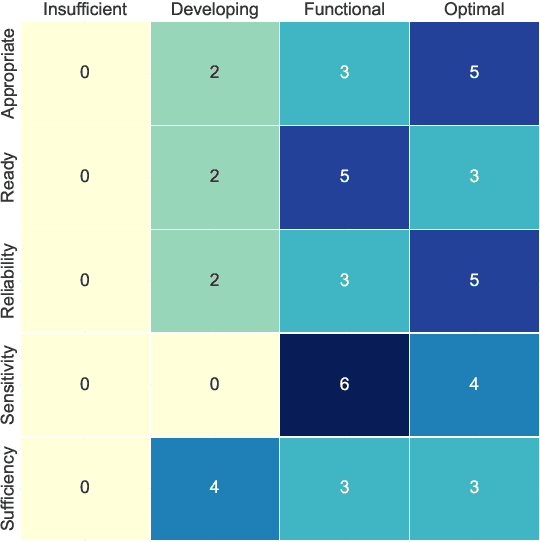
Abstract:The rise of datathons, also known as data or data science hackathons, has provided a platform to collaborate, learn, and innovate in a short timeframe. Despite their significant potential benefits, organizations often struggle to effectively work with data due to a lack of clear guidelines and best practices for potential issues that might arise. Drawing on our own experiences and insights from organizing >80 datathon challenges with >60 partnership organizations since 2016, we provide guidelines and recommendations that serve as a resource for organizers to navigate the data-related complexities of datathons. We apply our proposed framework to 10 case studies.
You Are What You Write: Preserving Privacy in the Era of Large Language Models
Apr 20, 2022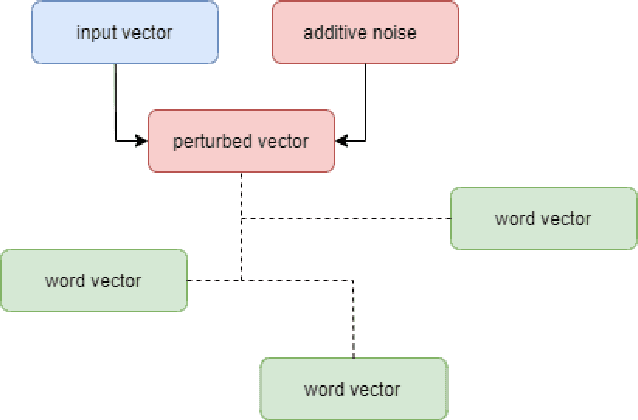



Abstract:Large scale adoption of large language models has introduced a new era of convenient knowledge transfer for a slew of natural language processing tasks. However, these models also run the risk of undermining user trust by exposing unwanted information about the data subjects, which may be extracted by a malicious party, e.g. through adversarial attacks. We present an empirical investigation into the extent of the personal information encoded into pre-trained representations by a range of popular models, and we show a positive correlation between the complexity of a model, the amount of data used in pre-training, and data leakage. In this paper, we present the first wide coverage evaluation and comparison of some of the most popular privacy-preserving algorithms, on a large, multi-lingual dataset on sentiment analysis annotated with demographic information (location, age and gender). The results show since larger and more complex models are more prone to leaking private information, use of privacy-preserving methods is highly desirable. We also find that highly privacy-preserving technologies like differential privacy (DP) can have serious model utility effects, which can be ameliorated using hybrid or metric-DP techniques.
NL-Augmenter: A Framework for Task-Sensitive Natural Language Augmentation
Dec 06, 2021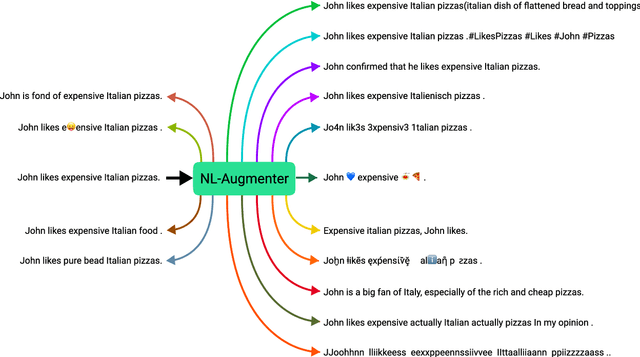
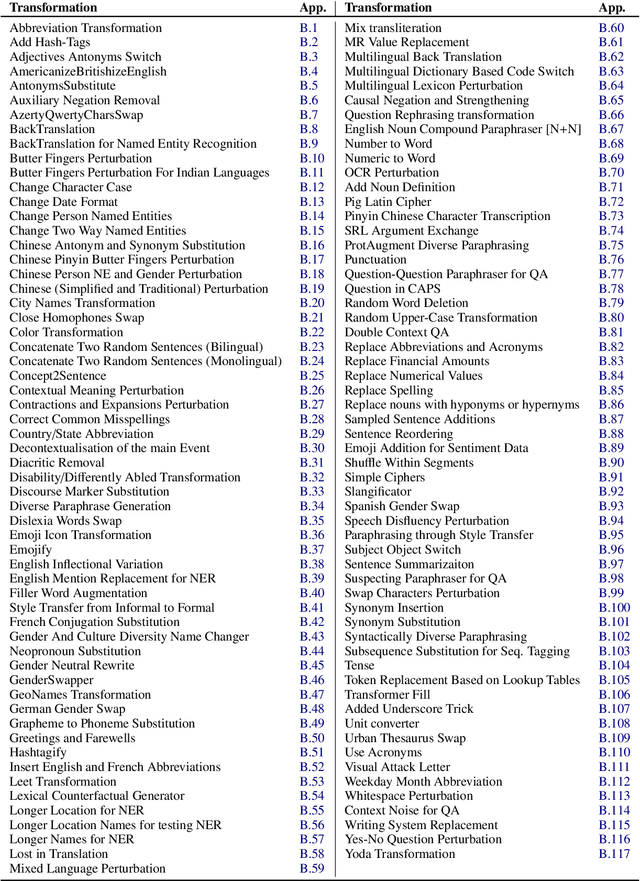
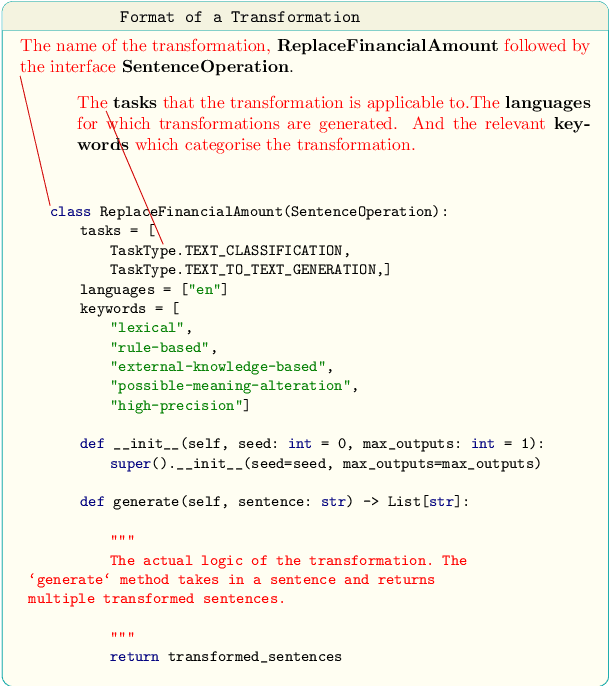
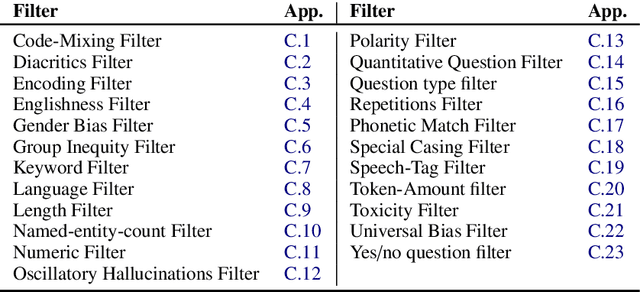
Abstract:Data augmentation is an important component in the robustness evaluation of models in natural language processing (NLP) and in enhancing the diversity of the data they are trained on. In this paper, we present NL-Augmenter, a new participatory Python-based natural language augmentation framework which supports the creation of both transformations (modifications to the data) and filters (data splits according to specific features). We describe the framework and an initial set of 117 transformations and 23 filters for a variety of natural language tasks. We demonstrate the efficacy of NL-Augmenter by using several of its transformations to analyze the robustness of popular natural language models. The infrastructure, datacards and robustness analysis results are available publicly on the NL-Augmenter repository (\url{https://github.com/GEM-benchmark/NL-Augmenter}).
CAPE: Context-Aware Private Embeddings for Private Language Learning
Aug 27, 2021

Abstract:Deep learning-based language models have achieved state-of-the-art results in a number of applications including sentiment analysis, topic labelling, intent classification and others. Obtaining text representations or embeddings using these models presents the possibility of encoding personally identifiable information learned from language and context cues that may present a risk to reputation or privacy. To ameliorate these issues, we propose Context-Aware Private Embeddings (CAPE), a novel approach which preserves privacy during training of embeddings. To maintain the privacy of text representations, CAPE applies calibrated noise through differential privacy, preserving the encoded semantic links while obscuring sensitive information. In addition, CAPE employs an adversarial training regime that obscures identified private variables. Experimental results demonstrate that the proposed approach reduces private information leakage better than either single intervention.
 Add to Chrome
Add to Chrome Add to Firefox
Add to Firefox Add to Edge
Add to Edge